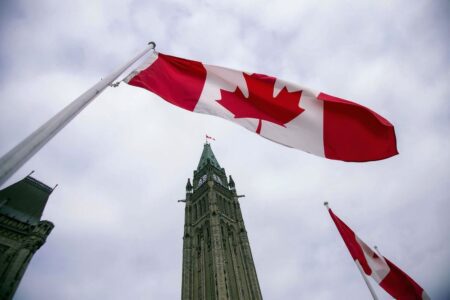
Prospective newcomers and international students can likely expect more delays and frustrations as Canada’s immigration backlog grows to nearly two million.
According to CIC News’ newly acquired data from the Immigration, Refugees and Citizenship Canada (IRCC), the backlog in immigration applications has been steadily increasing in the last few months, up from 1,813,144 persons in mid-December to 1,844,424 in mid-March 2022. The numbers include pools of applicants vying for citizenship, permanent residency, study permits, temporary work visas, and visitor visas.
Despite the massive backlog, IRCC has reportedly made significant progress in the Express Entry category, an economic class immigration pathway to Canada, which has decreased by nearly 24,000 applications since December. The past two weeks have seen more Federal Skilled Worker Program (FWSP) applications processed than a seven-month period in 2021, while the Canadian Experience Class (CEC) only has 10,400 persons left to be processed, CIC News reports.
The new report on Canada’s immigration application numbers shows an increase in temporary resident applications as well. Between Feb. 1, 2022 to Mar. 17, 2022, work permit applications went up by nearly 15,000, while study permit extensions increased by 4,054 during the same period.
Last month, the government unveiled the Immigration Levels Plan 2022-2024, a new strategy to boost the number of newcomers into Canada over the next few years. The government is already looking at admitting 431,645 permanent residents this year, while 447,055 and 451,100 newcomers aimed in 2023 and 2024 respectively.
In the official announcement, Canada’s immigration minister Sean Fraser said the plan was aimed at attracting skilled workers that would bolster Canada’s economy and address its labour shortage, in addition to reuniting families and resettling the world’s most vulnerable groups through refugee resettlement.
 One in three international students achieve PR status in Canada within a decade since their first study permit was issued.
One in three international students achieve PR status in Canada within a decade since their first study permit was issued.
Canada’s immigration backlog: What are the outcomes for int’l students?
Fraser said he has his “full attention” devoted to addressing Canada’s immigration backlogs and creating a more “nimble” system, reported the Toronto Star. Despite the reassurance, international students in work-experience based co-op programmes have reported frustrating delays in processing times and lack of clear communication from the IRCC, according The PIE News. Students in British Columbia’s Simon Fraser University were forewarned of processing times of up to 18.5 weeks for their placements.
International students are largely drawn to Canada for its post-graduation work permit (PGWP), a one-time temporary work permit that allows graduates to work up to three years in the country after completing their studies.
A report published by Statistics Canada on Jan. 18, 2022 indicates promising outcomes for international students: more graduates are getting PGWPs, while the median annual salary for PGWP holders has increased by 12,300 Canadian dollars from 2008 to 2018. The report suggests an encouraging trend in transition rates to PR status due to graduates’ cumulative work and study experience in the country. A separate study also reported that three in 10 overseas students who first entered Canada after 2000 attained a permanent residency status within a decade after their study permit was first issued.
Some of these Canadian provinces don't require you to have a job offer to settle there permanently. No, we're not kidding. #internationalstudentscanada #workinCanada #PNPhttps://t.co/fC3pBpm4HQ
— Study International (@Study_INTNL) February 14, 2022
Indian nationals account for the highest number of PGWP holders within the decade studied, up from 10% in 2008 to 46% by 2018, while the opposite was observed in students from China, plunging from 41% to just 20%. The annual median earnings also differed significantly based on industries, gender, and age.
The current bottleneck pace in processing Canada’s immigration applications won’t affect the odds of obtaining a study permit, but it could cause a hiccup for PGWP applicants. Those with PGWPs that are expiring soon could potentially lose their right to work in Canada and face the prospect of going home unless they acquire a new work permit in time or successfully achieve PR status.










